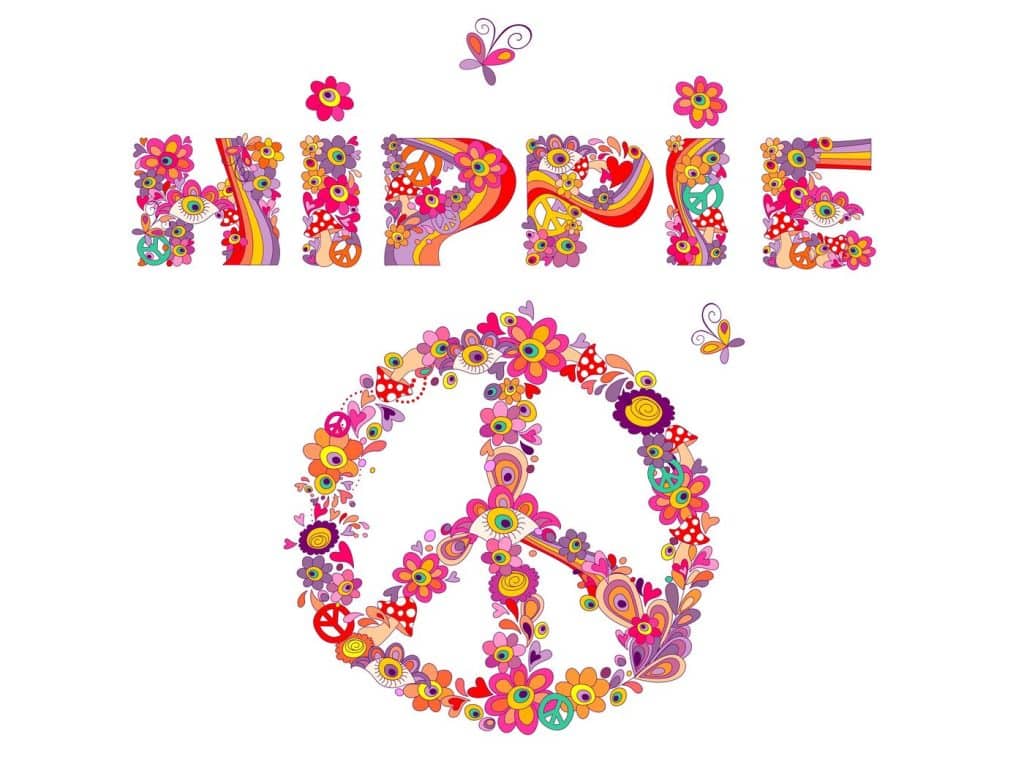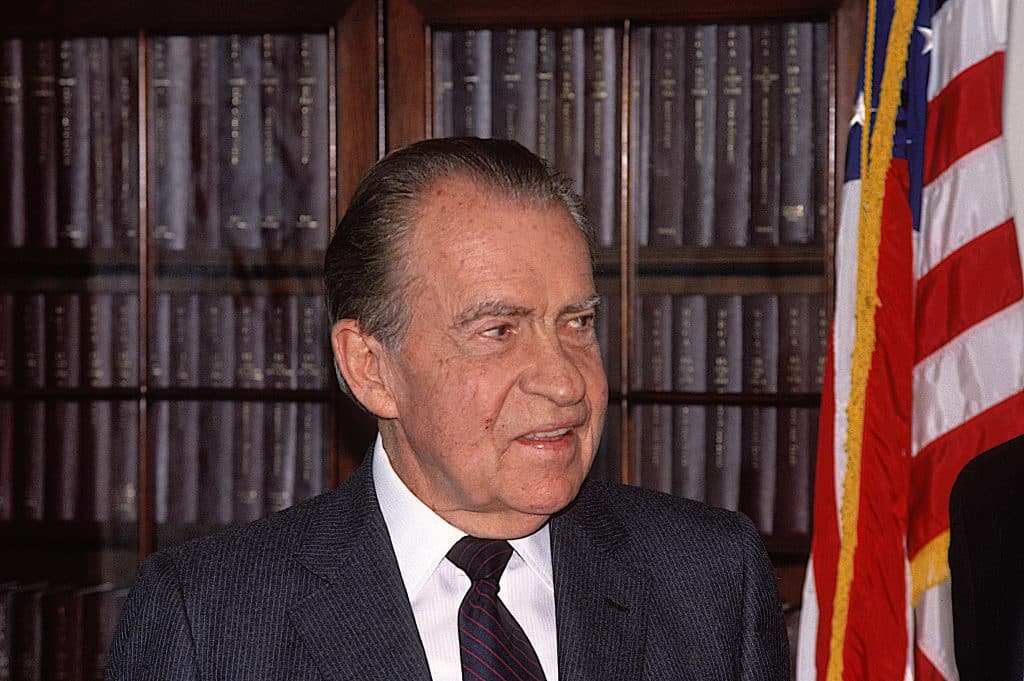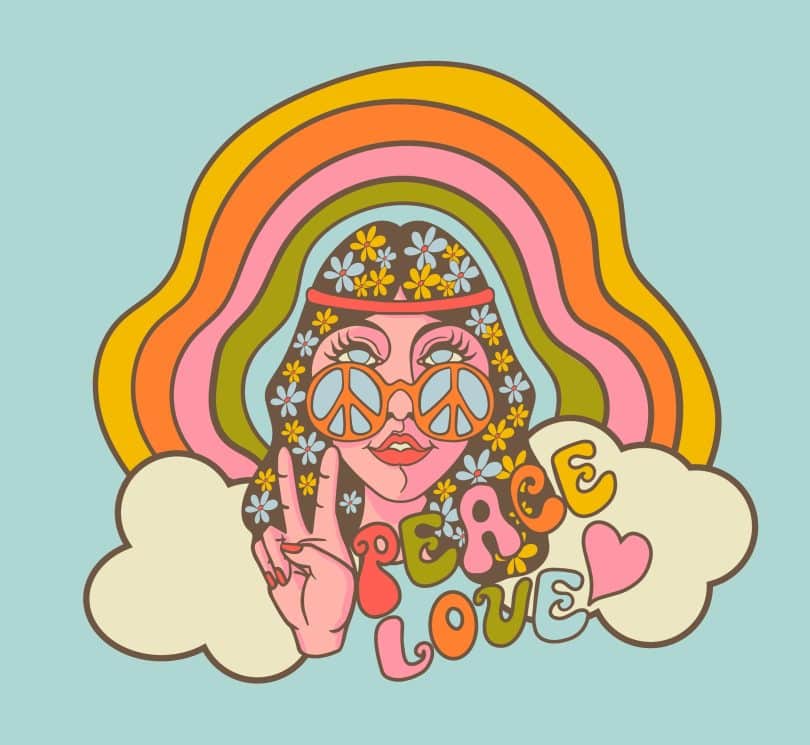Any label, any name, any word has a story. First it begins with the etymology – what it literally means – and then it moves on to what that word stood for and what it grew into. Then, in some cases, you have to trudge your way through the various generational meanings that took place, each decade a new group of people either accepting, rejecting or changing it. The word hippy is no different.
For decades, perhaps even centuries, this word has been used to stand for anti-establishment movements and free-thinking. However, for some more involved in that establishment, it is also used as a derogatory label. Meaning those who go against society and don’t want to align with its values. How can the word be two things simultaneously? Let’s delve deep into the truth behind the word: hippy.
To stay current on everything important happening in the industry, subscribe to The Cannadelics Weekly Newsletter. Also, it’ll get you premium access to deals on cannabis flowers, vapes, edibles, and much more! We’ve also got standout offers on cannabinoids, like HHC-O, Delta 8, Delta 9 THC, Delta-10 THC, THCO, THCV, THCP & HHC, which won’t kill your bank account. Head over to our “Best-of” lists to get these deals, and remember to enjoy responsibly!
Etymology
Etymology, simply speaking, is the study of the meaning of words and the ways in which they have changed over time. How was a word created, and how has that word meant different things in different moments in history. An example of this is the word avocado. For the majority of the world, an avocado is a fruit (yep, it’s not a vegetable) that people enjoy with eggs for breakfasts, in smoothies or in salads. However, the etymology of it is quite interesting. Babbel writes:
“The word avocado comes from Spanish aguacate, which in turn comes from the Nahuatl ahuacatl, meaning testicle. Surprised? Perhaps, but the more one thinks about it, the less surprising it gets — they do rather resemble a man’s soft spot, and this resemblance becomes even more pronounced when you see avocado duos dangling clumsily from trees.”
This new-found knowledge may just as well make you look at avocados in a different way next time you’re using them in a dish. But, as you can see, the meaning behind avocado has changed over time. Nowadays, it would be unlikely for most people to know the etymology of the word, whereas in another time it would have been.
Evolution of Words
The ability to speak and communicate is something that takes us away from a lot of other animals, and it has allowed us to build civilizations, plan for the future, as well as reminisce and learn from the past. But this also means that we have around 7100 languages being spoken in the world today – all of which are evolving and changing to fit the modern world. Science Node writes:
“Anyone who knows how ‘to google’, heard a ‘vuvuzela’, used ‘the grid’ or witnessed a ‘bromance’ will know that a language can change over time as well; new words regularly appear in our vernacular, words change their meaning and old words slowly die away.
Dictionaries try to keep on top of changes; around 2,000 new words were added to the New Oxford American Dictionary in 2010 alone.”
It’s not only new objects that need to be added to the dictionary, but also new fashions and trends. For example, ‘twerking’ became a popular hip-hop dance and was subsequently added to the list of dictionary words. This was the same with ‘selfie’, which has become so popular that it’s impossible to ignore.
The Word “Hippie”
It is possible, however, for a word that has existed for centuries to completely change its meaning. This can happen very quickly too. This is what happened with the word hippy, in a way. In the 1960s, hippy was being used both as a label of pride, as well as a derogatory term. But let’s figure out where it stems from. One theory is that it derives from the word ‘hip’, which means keeping on-trend and in fashion. However, in a sense, this is the opposite of what hippies stood for. Being a part of the hippy movement wasn’t about being in-fashion, it was about standing against the establishment and all that came with that. According to World Wide Words, the word hippie was first recorded in print in the 1950s so, before then, it wasn’t being used to the same magnitude as it was about to be. Wikipedia writes:

“The terms hipster and hippie derive from the word hip and the synonym hep… The words hip and hep first surfaced in slang around the beginning of the 20th century and spread quickly, making their first appearance in the Oxford English Dictionary in 1904. At the time, the words were used to mean “aware” and “in the know”. In the late 1960s, African language scholar David Dalby… claimed that hipi (a word in the Wolof language meaning “to open one’s eyes”) was the source for both hip and hep”
Looking at these supposed origins, it seems plausible. You would agree that the hippie movement believed to be ‘in the know’ and were ‘aware’ of the truths behind the mask of capitalist, war-ridden society. In addition, the idea of opening someone’s eyes to these truths also aligns quite nicely with that same movement. However, it’s also true that the word ‘hip’ is used to mean being fashionable. You could imagine your cringey grandpa coming home wearing a cap and asking: do I look ‘hip’? So perhaps we’ll need to go a little deeper to understand what the word hippie really means. For this, we will need to know what it stood for and what it still does stand for.
The Hippie Movement
The hippie movement was born in the 50s-70s from turmoil and desperation, during a time when the world was polarized. In the USA, there were many groups being marginalized: the youths, women, and, of course, none more than those of color. The civil rights movement was perhaps the largest battle, with many brave folk talking to the street to try and create an epic shift in people’s opinions. The aim was equality. This was what the hippie movement stood for. For people of all races, colors, genders, abilities, classes – to be treated the same.
The peak of the movement came during the Vietnam War, where hundreds of thousands of self-proclaimed hippies went to Woodstock music festival in 1969. Some unbelievable musicians played, including the likes of: Jimmy Hendrix, The Who and Jefferson Airplane. It was here where hippie culture could be seen in full force. Loads of people, with colorful clothing and sometimes crazy hair, dancing and enjoying the many recreational substances that mother Earth can offer. Not only that, but they were able to converse and protest against the many wrongs in society at the time. There is something worth noting, however, and it is best explained by Britanica:
“Hippies were largely a white, middle-class group of teenagers and twentysomethings who belonged to what demographers call the baby-boom generation. They felt alienated from middle-class society, which they saw as dominated by materialism and repression. Hippies developed their own distinctive lifestyle, whereby they constructed a sense of marginality. They experimented with communal or cooperative living arrangements”
There was a growing group of disillusioned middle-class youths in America who felt lost and without aims. Lots of these young people – angered by the obsession with possessions and the state of the world – started searching for alternative ways to live. Did the civil rights movement really involve them? Not really, no. Were a lot of these people poor? Probably not. But whilst the movements that the hippie culture stood for may not have always been directly involving them, they still stood for them. This meant that, in the end, the hippie movement sort of encompassed the entirety of anti-establishment America – rather than only the lost middle-class white kids. It was the beatles, it was the peace sign, it was “make love, not war”, it was free-thinking, it was sex, it was rock n roll.
Demonization
It was this all-encompassing definition that inevitably led to the word ‘hippie’ being weaponized by the government and the media. They saw the hippie movement as a threat. They saw it all as one thing – Woodstock, civil rights, women rights, anti-war protests, rock n roll music – all of it went against the world the government wanted to preserve. Nixon’s war on drugs and promotion of Middle America was what began the demonization of the hippie movement. He proclaimed that he stood for the ‘Silent Americans’, the people who spent their time doing their duties and not complaining and disrupting innocent people’s lives. This was how he got the support he needed. His enemies were the hippies and the civil rights movement. Nixon’s domestic policy chief John Ehrlichman, said:

“We knew we couldn’t make it illegal to be either against the war or black, but by getting the public to associate the hippies with marijuana and blacks with heroin. And then criminalizing both heavily, we could disrupt those communities… We could arrest their leaders. raid their homes, break up their meetings, and vilify them night after night on the evening news. Did we know we were lying about the drugs? Of course we did.”
This association of drugs, anarchy, aggression, irresponsibility and the hippie movement was a successful smear campaign. It won Nixon the election in 1968, as well as changing the definition of hippie forever. Whilst for many it would always mean peace and love, for others it now stood for the complete opposite. Still to this day, people will throw the word hippie around to mean something derogatory and negative.
Final Thoughts
The meaning of words will forever shift and change, but there are pivotal moments in time where events can radically alter their meanings. For ‘hippie’, it was the 60s. This period both created the word and destroyed it simultaneously. The hippie movement stood against the powerful establishment and, in consequence, it was retaliated against with the full force of the police and the media. Of course there’s still time for the word ‘hippie’ to shift and change but, for now, we must celebrate that there was a time when it stood for so much and we can hope that it will once again.
Hello readers! We appreciate you joining us at Cannadelics.com, a top choice news platform for independent coverage of the growing cannabis and psychedelics landscapes of today. Come by the site whenever possible for updates on current and world-changing events, and head over to the Cannadelics Weekly Newsletter, so you’re always up on what’s going down.







